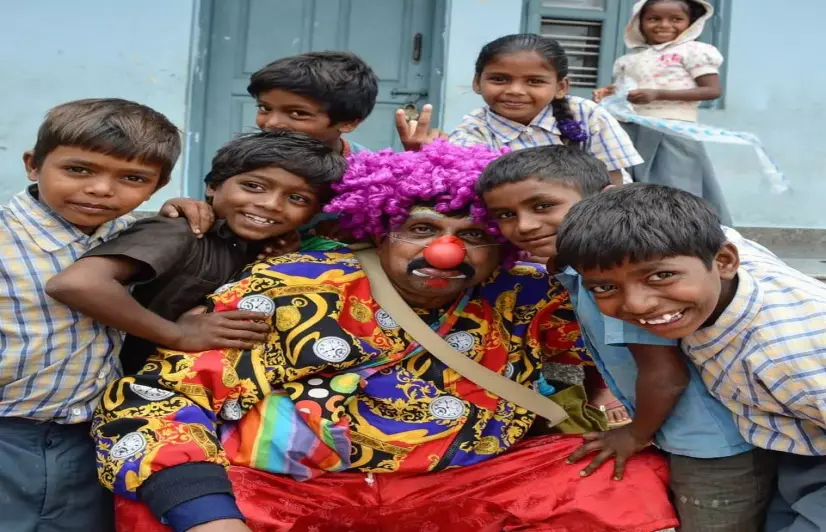How a Good Samaritan kept at it during lockdown

How a Good Samaritan kept at it during lockdown
Bengaluru, India: When the entire country was under lockdown because of coronavirus, a 51-year-old Bengaluru resident, motivated by his love for volunteering, took up the challenge of feeding the migrant workers, who were stranded far away from home and without any money or means of livelihood.
Tharanath Gajendra runs a Seva Cafe, a popular altruistic cafe run by volunteers, where guests donate to pay for the next customer's meal. He and his team of volunteers visit various orphanages, old age homes and hospitals across Karnataka and serve them food. Tharanath also doubles up as a clown to bring smiles on the faces of terminally ill children and lonely senior citizens. However, all his social services had to be put on hold when the lockdown was announced.
“When the lockdown happened, the first reaction was to sit at home. But sitting at home was very difficult for me,” Tharanath recollected. One day, I received a call from his friend who was looking for someone to cook food for over two months for the stranded migrant workers, he added.
He said preparing food for the needy during the lockdown was easier than going out for delivery. He mentioned that whenever he accompanied the team for delivery, he was overwhelmed by the severity of the situation.
He added that he once went to a slum with his team to deliver food around 2.30 pm, and as soon as their vehicle entered the area, kids started running back to the camp and screamed on top of their lungs, “Amma, khana aa gaya! Khana aa gaya!” (Mother, food has arrived).
He added that it was extremely difficult for him to see people in so much suffering.
He also narrated an incident when a migrant labourer, who was standing in the queue at a police station waiting for his chance to go to his home, started crying loudly. When he enquired, he found that the man hadn’t eaten for three days. Immediately, his team gave him some fruits and a food packet to help him survive the two-day journey.
A few days later, Tharanath claimed, a few local police officers told him not to distribute food packets among Muslims, or even go near them.
“Whether they are Hindus, Muslims or from a coronavirus hotspot zone, we have to give food to them. Hunger does not differentiate between Hindus and Muslims,” Tharanath said. The only thing that was asked of them is to stand in a queue and wear masks to collect the food.
After the unlock measures were initiated, his work as a cook took a break as camps were getting empty and people were allowed to board trains to go back to their homes. Then, he and his team then started handing out food kits comprising chapati, buttermilk, jaggery that could last for two-three days to the migrant workers who were returning to their hometowns or villages. Initially, his team bought chapatis that would cost Rs 10 to Rs 15 per piece but it was not feasible. “We then posted on Facebook requesting for chapatis and we got a total of 10,000 chapatis per day from various households across Bengaluru,” he said.
Tharanath's commitment to serve and the will to find ways to overcome any challenge in his mission continues to drive his endeavours.
Would you like to Support us
101 Stories Around The Web
Explore All NewsAbout the Reporter
Write For 101Reporters
Would you like to Support us
Follow Us On
